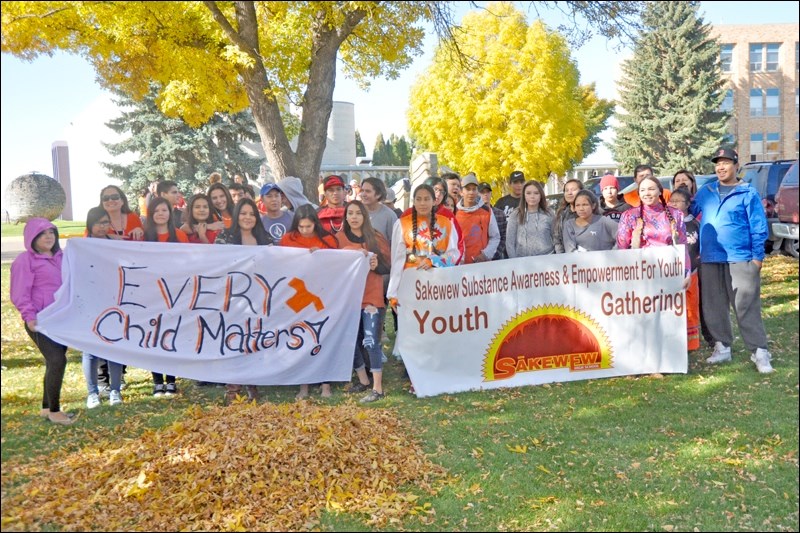Residential School survivors and others throughout the Battlefords and area took part in Orange Shirt Day activities on Friday, Sept. 29.
The events were held a day before the national Orange Shirt Day on Sept. 30. It is a day of recognition for residential school survivors.
Organizer Eleanore Sunchild explained that the genesis for Orange Shirt Day came from the story of a little girl who had worn a brand-new orange shirt for her first day at residential school, only for that to be taken away.
“She was given a uniform and a number, and her hair was cut,” said Sunchild.
When she became an adult, she decided “to make a day dedicated to residential school survivors, and she called it Orange Shirt Day in memory of her orange shirt that her mom had bought new for her to go to Indian residential school.”
Two main events highlighted the day on Friday. The first was a prayer gathering at 11 a.m. at the old Battleford Industrial School site.
The second was the Residential School Survivors’ Walk that took place starting at the Chapel Gallery in North Battleford and making its way through downtown, ending at Third Avenue United Church, where lunch was served.
There, the audience heard from Ray Fox, former North Battleford councillor, who explained everyone was impacted by residential schools, even those who did not attend them.
“Just by you showing up here, and just by supporting what is going on, that is a large step towards reconciliation,” said Fox.
He added, “we are not asking for anybody to give us anything. All we are saying is let us be us.”
Fox’s words reiterated what has been the main criticism of Indian Residential Schools: that they forced assimilation upon indigenous people across Canada.
This is the third year that a Residential School Survivors Walk took place in the Battlefords, and organized noticed a considerable increase in participation. It included not only residential school survivors, but other supporters as well as students from area schools.
According to Sunchild, the message she hoped people would take away was to learn about Indian Residential Schools and that era.
“It is a part of our history that isn’t taught, and people are just starting to learn about Indian residential schools,” said Sunchild. “I think it’s very important that all Canadians understand the issue of Indian residential schools, and the history.”



